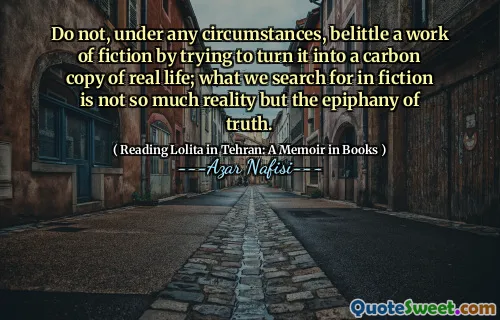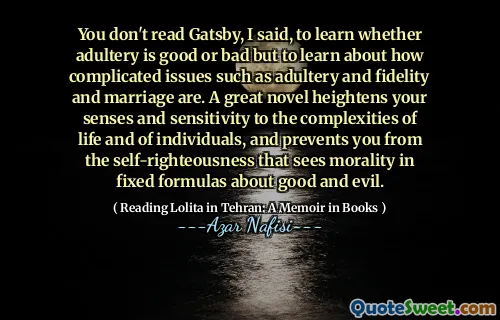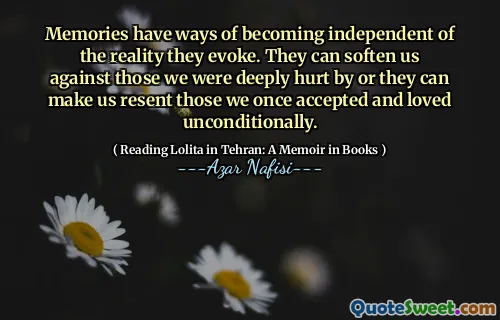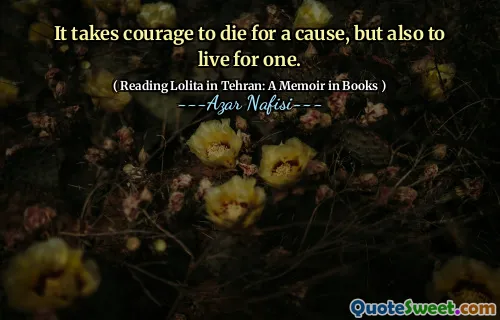
O reader, I need you to really imagine us because we will not appear if you do not
📖 Azar Nafisi
In "Reading Lolita in Tehran," Azar Nafisi shares her experiences as an English professor in Iran, where she defies the oppressive regime by gathering a group of female students to discuss great works of literature. Through these literary discussions, she highlights the power of storytelling and imagination as vital tools for both personal freedom and resistance against tyranny. Later, literature becomes a lens through which they explore their own lives and the constraints imposed by their society.
The memoir underscores the necessity of imagination for understanding and connecting with others. Nafisi emphasizes a quote directed at the reader, urging them to visualize the characters and experiences she describes. This call to imagine brings to light the importance of empathy and the role of literature in bridging cultural divides. Ultimately, the narrative reveals how storytelling can not only illuminate the human condition but also empower individuals to reclaim their autonomy in the face of oppression.











